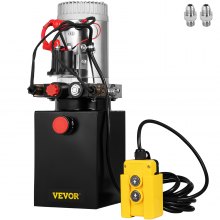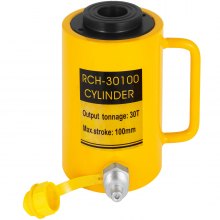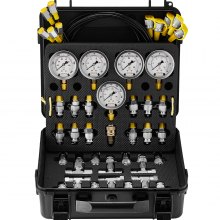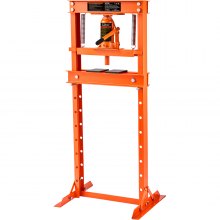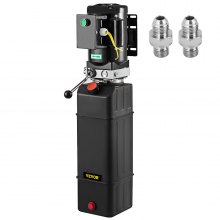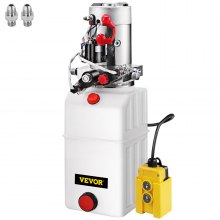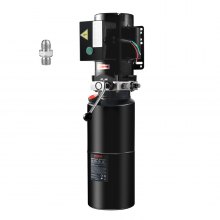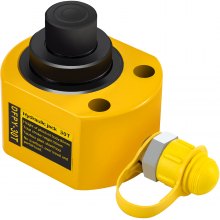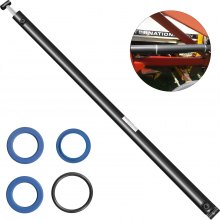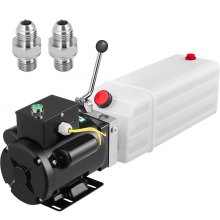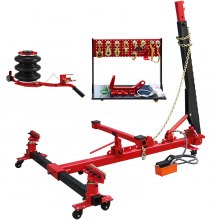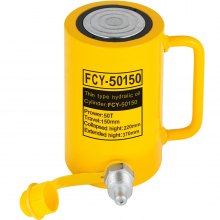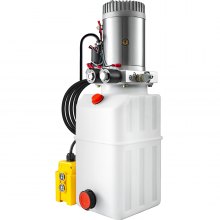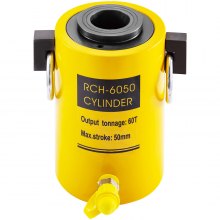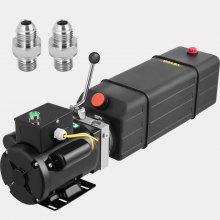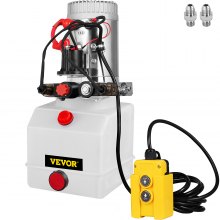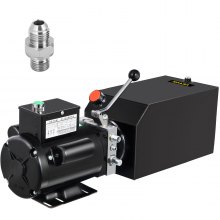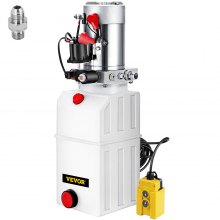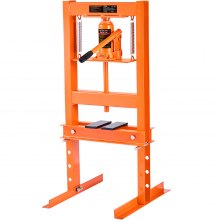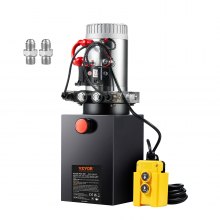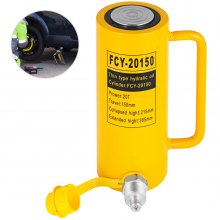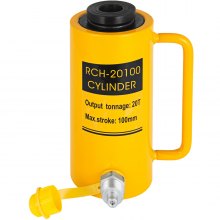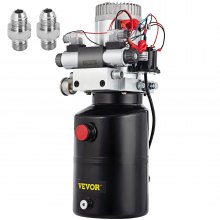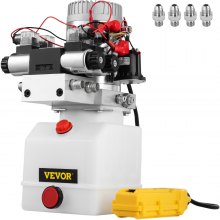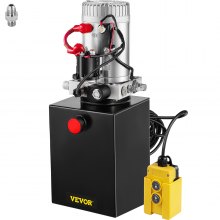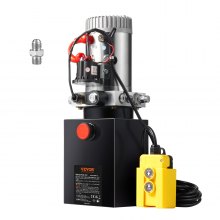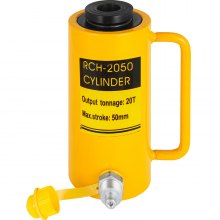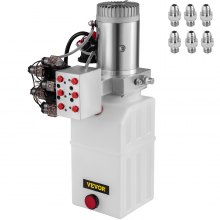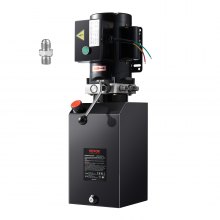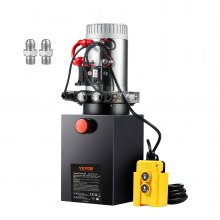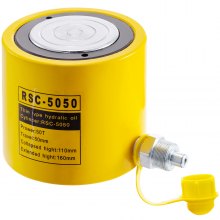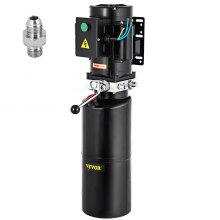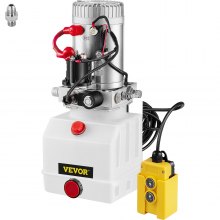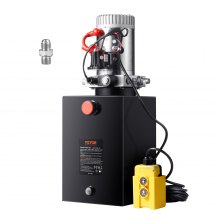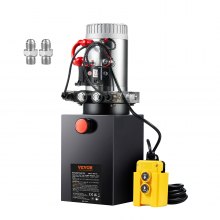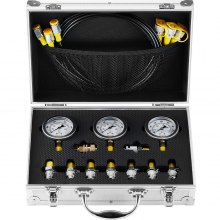Fluid Dynamic At Work, Unveiling The Marvel Of A VEVOR's Hydraulic Machinery
Efficient power transmission and precise control are important in machine production and use across many industries today. With the growth in machining, the ability to exercise controlled strong power has generated countless achievements. Therefore, it is unsurprising to see hydraulic equipment being used for everything from simple tasks to enormous ones.
From cosmetic makers who need the power to efficiently compress powders into strong tablets without damaging the powder or its cases to construction workers who lift heavy things, people have used hydraulics across spheres. Therefore, it is no news that VEVOR is a major part of the hydraulic market, asserting our place in machine production by taking the lead in hydraulic equipment-making.
An Overview Of Hydraulic Equipment
Hydraulics equipment is an example that school subjects don’t end in the classroom, with the concept of hydraulic machinery putting one common physics law to use. Pascal’s law, at the heart of hydraulic systems, states that when a change in pressure is applied to an enclosed fluid, it transmits undiminished throughout the fluid. Using Pascal’s principle, hydraulic systems achieve force amplification and precise motion control.
The hydraulic system or machinery works with hydraulic fluid, which cannot be easily compressed to transfer energy efficiently within the system. The hydraulic pump pressurizes the fluid to create a high-pressure fluid flow within the system, converting the mechanical energy from the engine to hydraulic energy. From the reservoir where the fluid is stored, control valves direct the flow of the hydraulic fluid to different parts of the system.
The hydraulic energy has to be reverted to mechanical energy, which is where the hydraulic actuators come in. They consist of the hydraulic cylinder and motors doing the actual work of producing linear or rotary motion. The hydraulic fluid then takes the return part to return to the reservoir after completing its cycle, staying until it is recirculated again.
Reason Why Should You Get Hydraulic Equipment
Hydraulic systems are quite common nowadays. From performing simple everyday tasks to complex ones, people invest in hydraulics for different reasons. While uses may differ, some benefits unite the need for hydraulic systems. They include:
High Power Density
One of the primary uses of hydraulics is high power generation in compact spaces. With high power density, they are suitable for heavy-duty applications. Also, hydraulic systems can transmit power over a long distance. This makes them a better choice when using mechanical linkages or electrical cables is not feasible.
Smooth Motion And Precise Control
Hydraulic systems produce smooth and linear motion, which is vital in many applications where sudden or jerky movements can be dangerous. Also, you can precisely control the speed, force, or position in hydraulic systems, making it valuable for accuracy and repeatability.
Reliability And Safety
Hydraulic systems are highly dependable and durable, making it easy to work in extreme conditions without significant degradation. Due to its reliability, a hydraulic system can rarely cause harm to the operator or people around. Also, they have been designed with safety mechanisms that ensure their dependability even in challenging situations.
Energy Efficiency
Hydraulic systems offer energy efficiency and sustainability. They can transfer energy over a long distance with minimal waste and capture energy for reuse.
Adaptability And Low Maintenance
Hydraulic systems are used in many sectors, including manufacturing, agriculture, automotive, construction, and aerospace. Additionally, they are long-lasting and require low maintenance apart from regular fluid changes, leaks, and wear inspections.
Different Types Of Hydraulic Equipment And Their Functions
Hydraulic systems are versatile, with many hydraulic equipment. These pieces of equipment have various functions, and you can make a choice, depending on your needs. Here are some hydraulic equipment and their uses:
● Hydraulic Cylinders convert hydraulic pressure into mechanical force for heavy movements, pulling and pushing of loads, and controlling the movement of machinery components like booms and arms.
● Hydraulic pumps convert mechanical power to hydraulic power and can be used in excavators, loaders, and hydraulic presses.
● Hydraulic motors convert mechanical energy into rotational mechanical power for machinery that needs continuous rotation, like conveyor systems and winches.
● Hydraulic Power Units provide a complete power source for hydraulic systems and can act as standalone units or be integrated into systems like hydraulic lifts, presses, and control systems.
● Hydraulic Presses use hydraulic energy to compress, shape, or stamp materials. They are used in forging, plastic molding, metal forming, car assemblies, powder compressing, and metal stamping to exert tremendous but precise energy.
Why choose VEVOR?
With their unique capabilities and advantages, hydraulic systems play vital roles in industries. Their significance has made them indispensable in various aspects of the economy. People in automotive, manufacturing, renewable energy, forestry, mining, and material handling all have multiple uses for hydraulics.
Therefore, many brands have risen to the task of providing companies with the necessary hydraulic systems for their operations. However, that doesn’t mean you can buy your hydraulic equipment from just any brand.
VEVOR is a machine and automotive-caused brain that can assure you of quality for everything you get from us. Staying with our customers all through the process, VEVOR has a high-class customer support department. The customer support department technical assistance, maintenance and installation guidance, and minor repairs.
Eventually, you do not only have to buy from VEVOR to save cost during purchase, our products are also durable, making them long-lasting.
FAQs About Hydraulic Equipment 200
Can hydraulic systems be customized for specific applications?
Yes, hydraulic systems can be customized for different functions and to meet various requirements. Customization is one of the greatest strengths of hydraulic systems. Possible customization for a hydraulic system includes system reconfiguration, hydraulic fluid and component selection, control system and safety features organization, etc.
What is the difference between hydraulic and pneumatic systems?
Hydraulic and pneumatic systems both use fluid dynamics to function. However, hydraulic parts use non-compressible fluid, and hydraulic fluids to function while pneumatic systems use compressible gas to function. Also, hydraulic systems generate way more energy than pneumatic systems.
Can hydraulic systems be used in an environmentally sensitive area?
Hydraulic systems can be used in environmentally sensitive places as they have minimal impacts on the environment. However, you can take it a step further by using environmentally friendly hydraulic fluids like biodegradable fluids.




























